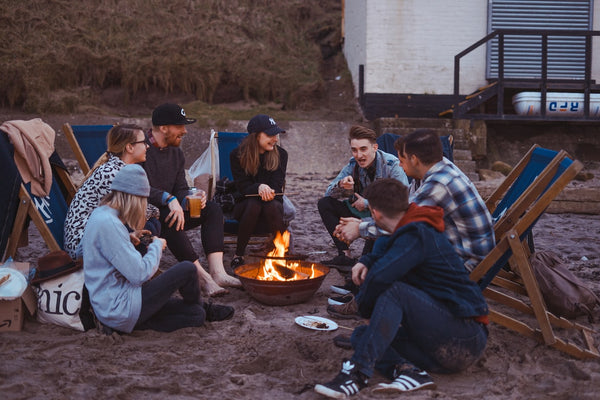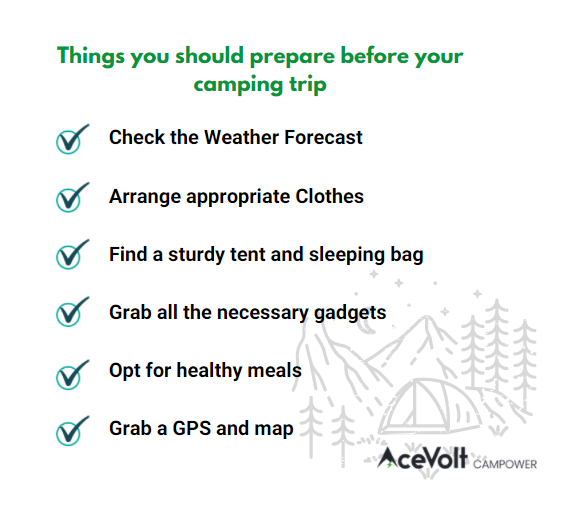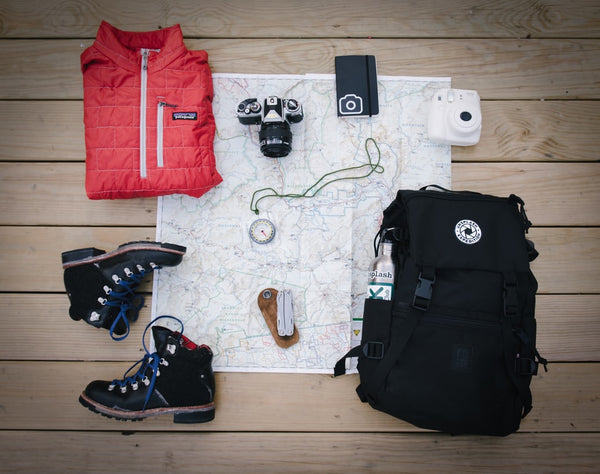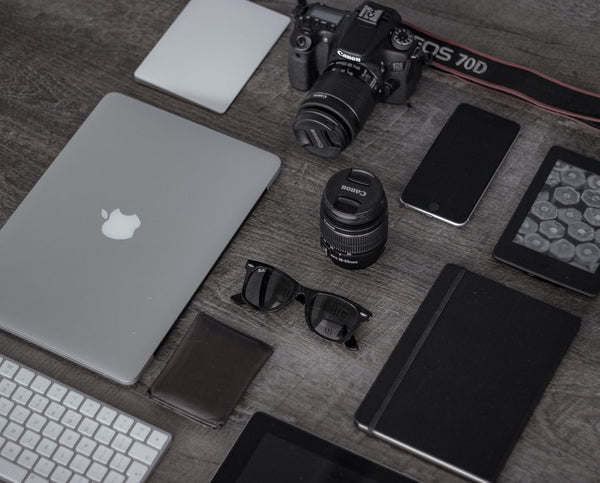
Tips On Safely Use Electricity In Harsh Weather
Weather is inconsistent and can surprise you no matter how many times you check the forecast. Make sure you have a plan in place to face a sudden change in weather while camping. It can be a thunderstorm, lightning, strong winds, or floods. Also, there are extra electrical hazards for campers in severe weather, as the combined factors of electricity and damp areas can increase the risk of electrical shocks. To eliminate the risk of any electric hazard, never forget to bring the safest portable power station on your camping trip.
Let's briefly discuss some camping tips to help you face extreme weather effectively.
1. Use your car to block the wind: If your campsite is fully exposed, try to park your car next to your tent to block the wind.
2. Use a tarp to block wind and rain: A large, durable tarp can be a lifesaver on a camping trip to provide the necessary projection. Tarps provide ideal protection for camping gear in a storm.
3. Dry out all your gear: Dry out all your gear that got wet once the rain has cleared. Open the gear up and let it dry.
As mentioned above, electricity can be dangerous during rain, especially in damp conditions. However, campers can use electricity safely if they take the proper precautions.

Tips to safely use electricity in harsh weather
- 1. Ensure that electrical appliances are certified and robust for the harsh conditions you may encounter while traveling and camping.
- 2. Always check the electrical appliance for damage since you last used them.
- 3. Don't use equipment cords without a ground connection unless they are double insulated.
- 4. Cover all unused electrical openings with electrical enclosures and fittings.
- 5. Never place your tent underneath an overhead power line.
- 6. Leave a gap of at least six meters between the tent and power lines.
- 7. Do not use electronics when they are wet.
- 8. Prepare for the power outage.
Things you should prepare before your camping trip

Check the Weather Forecast:
A few days before the trip, don't forget to check the weather conditions in the area you intend to camp. If thunderstorms or severe winds are predicted, it might be advisable to reschedule your camping excursion. Otherwise, storms and rainy seasons might ruin your camping trip, and you'll be stuck inside your tent for days and nights. If you encounter a storm when you are camping, we have prepared "15 Helpful Tips For Camping In The Rain" for you.
Arrange appropriate Clothes:
Try to arrange apt clothes for camping to provide you comfort throughout the trip. You may not get the chance to wash your clothes regularly. Therefore, choose moisture-wicking clothes and synthetic socks to keep the whole body dry and sweat-free. Don't forget to pack hiking boots, a sun hat, and a raingear.
Find a sturdy tent and sleeping bag:
A tent is the most critical thing you need when it comes to camping. It's where you should invest the most. Go for a bigger tent than you need. The second most crucial item is your sleeping bag. A sleeping bag will keep you warm in colder temperatures and can be used as a mattress to sleep on it in warm conditions.
Grab all the necessary gadgets:
A few essential tools and gadgets can make your camping a lot easier and safer, like a flashlight, headlamp, LifeP04 portable power station, extra batteries, a multi-purpose tool kit, and mobile chargers. Make sure to grab all these necessary gadgets before starting your journey.
Opt for healthy meals:
A camper should not overlook the importance of meals as supplying your body with the necessary nutrients is essential. A healthy meal makes you feel enthusiastic and full of energy throughout the trip. Great food options for camping include:
- drink powders
- coffee and tea
- peanut butter
- canned beans and soups
These items are perfect as they won't spill or waste and don't require any cooking. Also, have a sufficient water supply on your trip to keep yourself healthy and hydrated.
Grab a GPS and map:
A detailed map and a compass are still crucial tools for navigation. A compass helps you dissect the map, categorize land features and locate your position.

Emergency supplies for a camping trip
First aid kit:
A first aid kit can be of great help to avoid some unforeseen events, taking into account that you are far from the pharmacies. Make sure to carry enough medication for the whole trip. A first aid kit should include
- Thermometer.
- Adhesive cloth and bandage patch
- Cotton and gauze.
- Analgesic and paracetamol.
- Disinfectants.
- Cream for burns.
Self-Defense weapon:
Camping is a fantastic experience to create beautiful memories for life. But before you move out for such tours, it is vital to be aware of the threats and challenges you may face at the site. Many people complain about the attack of bears and other dangerous animals at the campsite. You may need to have the below-mentioned weapons to ensure your safety and survival.
- Bear pepper spray
- A hunting Knife
- Gun
A portable power station:
A portable power station is the best option to charge everyday personal gadgets and other electronic appliances while camping. AceVolt portable power stations are specifically designed to meet camping needs. AceVolt is exceptionally safe as it uses LiFePO4 cells that are much safer than the Li-ion battery cells. While Li-ion can operate under 104F, LiFePO4 can resist the temperature of up to 140F, significantly mitigating the risk of fires, overheating, and explosions and ensuring the safety of campers. AceVolt LiFePO4 is noiseless and free of emissions, which means you can use it safely at any time of the day without worrying about the environment. Unlike a generatorsince there's no motor, you don't have to perform oil changes or deal with any other maintenance problems that a combustion engine often requires.

Use your electronic devices safely
Don't use electrical appliances at the same time
While camping, you also need to think about the number of appliances you want to use at the site. You have plenty of sockets at home, and it's unlikely to overload them. But a campsite socket can overload in no time. So, avoid using heavy electrical equipment simultaneously to mitigate the risk of short-circuits and power outages.
Don't expose electronic devices to high temperatures
Exposure to heat can cause shutdowns and long-lasting damage to electronic devices. Don't expose your valuable electronic devices to scorching heat; shut down the old device manually when weather conditions get too hot. It protects the device from overheating.
Try to keep your electronic devices dry
Moisture doesn't go hand in hand with electricity. During rain, the tent's floor might get damp, and the electrical equipment placed on the floor can become dangerous due to condensation and mugginess. Make sure the equipment you plugin is safely placed and dry.
Conclusion
Camping is a serene experience, whether you explore the woods or go for a hiking trip. The adrenaline rush and excitement are tremendous, but sometimes, safety can get easily compromised if a camping trip is not planned correctly. Follow all the tips and precautions that are discussed above to ensure your safety against all odds. Make sure to use the best and safest portable power stations like AceVolt that uses LiFePO4 cells to improve your safety and fulfill all your energy needs efficiently. Keep an eye on the weather, opt for robust camping gear and use the electronic devices carefully when the weather isn't ideal.
Related Product























Leave a comment